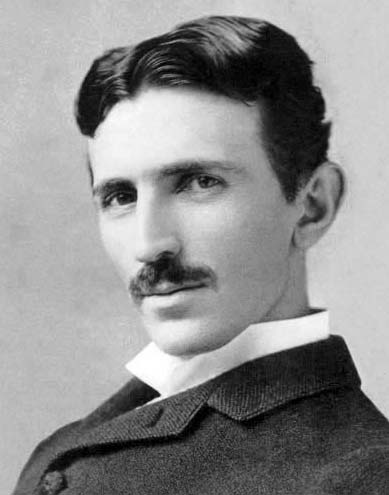Innovators are not businessmen and businessmen are not innovators

Summary: Distortion of language and euphemistic spin/lies are being devised in order to harm innovation and promote monopolisation (with stagnation) instead
The words that receive bad reputation are often essential to explaining key ideas. By ruining those words, those who wish to impede particular lines of operation or thinking may succeed. Hollywood likes using the word "pirate" and the mainstream press loves making use of the word "conspiracy" (as in, one company colludes or conspires with another, e.g. price-fixing) to become a loaded term and thus its use discouraged.
As we explained here several times before (although not with sufficient emphasis), the big people with big money and big monopolies have been co-opting the word "innovation" to promote "monopolisation". They try to sell to people the illusion that patent monopolies are required for the industry to move forward. It's one of those patterns of deception -- those talking points that go along with "job creation" and "free market" (meaning freedom to corporations, i.e. deregulation). To counter the spin we must realise and recognise the truth, which does not at all agree with those talking points, neither theoretically nor empirically. A glance at history helps resolve these false dilemmas and call the lobbyists "liars". They are paid to deceive politicians as well as the public (although the public cannot write legislation directly).
According to
this new article, something called "declaration of innovation" (euphemism-gasm!) turns out to be a Trojan horse for -- you've guessed it -- lobbying:
Gary Shapiro, president and CEO of the Consumer Electronics Association (CEA), announced the launch of the Declaration of Innovation, an online pledge for Americans to sign in support of policies that ensure innovation remains the strategic advantage of the United States of America.
CEA's Innovation Movement urges lawmakers to support policies that promote innovation. The Declaration of Innovation specifically states:
"We believe American innovators should be able to buy and sell their products around the world.
"We believe that more spectrum must be available for wireless broadband.
"We believe in welcoming the best and brightest minds to the United States.
"We believe in cutting the federal deficit."
It is a great call which I think will remain incomplete as long as monopolies and messy Software Patent Laws exist in the US.
Conspicuously missing from many such petitions are discouragements of patents. When the lobbyists push for something called "innovation" they usually beg for more patents to be granted and their funding sources (to which they are a front) turn out to be big businesses that want to erect fences around themselves, to essentially stifle competition. We recently wrote about the
SME Innovation Alliance, which is actually against SME interests. They are talking utter nonsense and the latest debunking comes from Mr. Masnick, who notes
that they are just lobbyists for software patents, even in the UK where these are not permitted (and rightly so):
[T]he UK does have a software industry. Apparently Mitchell just doesn't know where to look. Furthermore, plenty of countries that don't recognize software patents have a software industry. Why would he argue otherwise? Either way, I would think this seems like good evidence for why innovative companies should not want to be a part of the SME Innovation Alliance, as the organization's views seem woefully out of touch on actual innovation.
It is out of touch with SMEs as well. Based on its site we cannot even tell who is funding this thing. A disclosure would be nice.
It should be noted that this problem is not unique to just patents on software and even some
mechanical companies have woes to testify about.
Over the past week we found and shared 3 headlines that celebrate innovation in the context of Free software. This is good. We are taking back the word innovation and not allowing it to just become synonymous with patents. The likes of the lobbying groups (that sometimes put "innovation" in their name or events they organise) would like people to believe that Free/open source software is a threat to innovation, despite the fact that a lot of today's innovation comes from academia, where scientific findings and code are largely shared. Innovation is a dog whistle that can affect politicians, so we must make an attempt to take that back and associate innovation with sharing. As we showed last year, the word "innovative" (or "novel") is used interchangeably to mean "patent-encumbered" (or "patent pending") and the same word is currently being misused by US-based companies that try to change
NZ's patent law (
Intel for example). This will be the subject of our next post.
⬆
